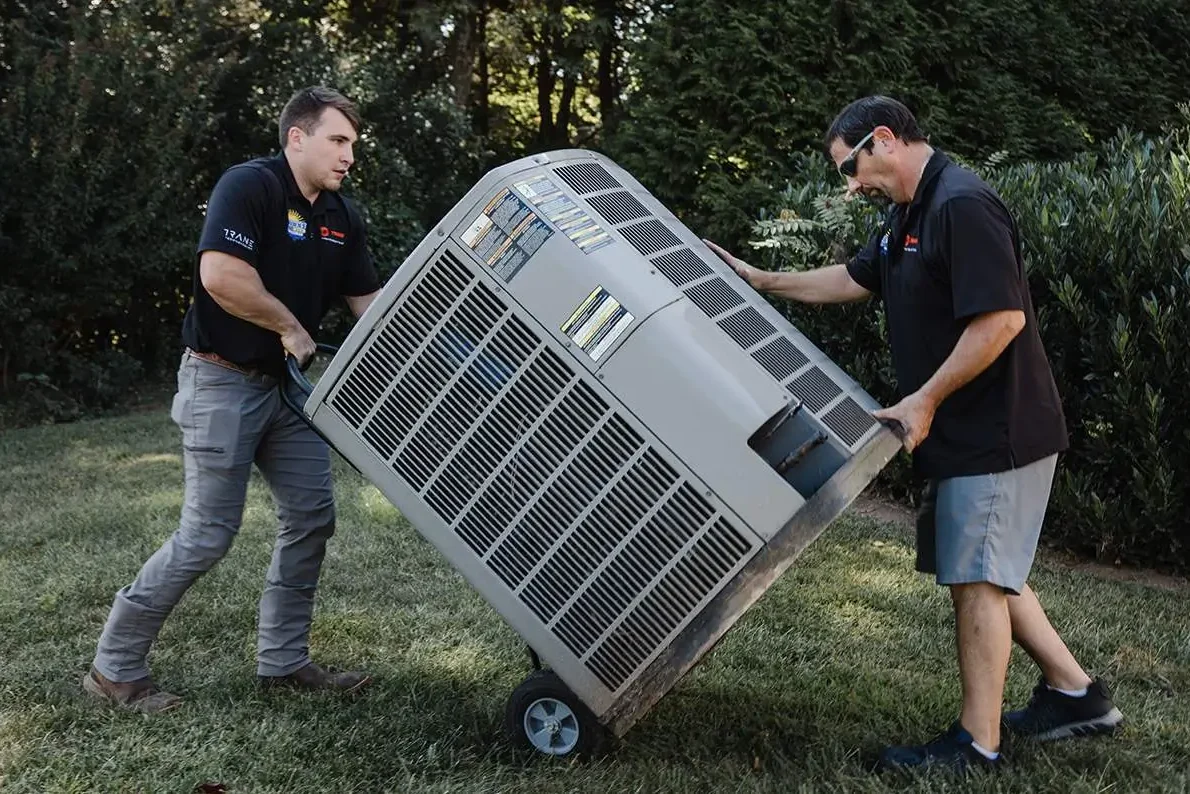HVAC Licensing
Texas HVAC: How to get certified and licensed in TX
Table of Contents
Download the Checklist!
You will need a license to work as an independent HVAC contractor in Texas, or if you’re working as a registered or certified HVAC tech, under the supervision of a licensed contractor.
What are the different types of HVAC licenses?
There are a few different types of licenses you can obtain in Texas.
Class A licenses
This license lets you work on any unit of any size, so it’s a good choice for technicians who want to work on commercial or industrial units.
Class B licenses
Class B licenses are similar to Class A, but they limit technicians to only working on cooling systems that weigh less than 25 tons or heating systems of no more than 1.5 million BTUs.
NATE and EPA licenses
A NATE certificate is a certification from the North American Technician Excellence organization. It is not legally required, but it proves you are a knowledgeable and experienced HVAC professional. Texas licenses include EPA refrigeration, which lets you work with equipment containing refrigerants. Therefore, this license does not require extra work or change your pay.
Average wages for HVAC careers in Texas
HVAC professionals in the Lone Star State may earn anywhere from $16.74 to $44.16, although these rates may be affected by overtime pay, night/weekend differential, where you live, and how much experience you have. If you have specialty certifications, you may also be able to command a higher wage.
For example, holding a NATE certification may earn you $10,000 to $20,000 extra in salary. The average salary for Texas HVAC mechanics and installers is $54,650 per year, although technicians with a Class B license may earn slightly less than those with a Class A license.
Benefits of getting an HVAC license
Over the next decade, HVAC jobs in Texas are projected to grow by 15%. Texas HVAC technicians also make slightly more than the national average salary. You can work while you train for the license, so you make money while learning.
Getting a Texas HVAC license informs customers about your proficient skill level. They can feel confident when hiring you.
How much does it cost to get an HVAC license in Texas?
Getting a Texas HVAC license is affordable. You can opt to pay for test prep, but it’s not required. The licensing and registration fees are as follows:
- New license application fees: $115
- Exam fees: Can vary, and are paid directly to PSI
- Registration for new technician: $20
- Registration for technician certification: $50
Licenses must be renewed annually. You must submit proof of at least 4 hours of continuing education each year, with one hour of consisting of Texas laws and rules.
How to get an HVAC license in Texas
Texas has a few different HVAC licensing requirements. Applicants must register as an ACR technician. There’s no exam to become an ACR technician. This registration gives you the credentials to work under the supervision of a licensed HVAC technician. Then, you will gain at least four years of work experience.
Next, you can take the contractor’s examination. The exam is open to those with a criminal conviction, but the licensing department may choose to deny your application. Also, you must be at least 18 years old to sit for the exam.
There are no educational requirements for the exam, but you can take a course at Texas State Technical College, Southwest Texas Junior College, or another local trade school if you want to.
Texas Department of Licensing and Regulation administers the exam. You can apply online and then TDLR will contact you with the location and time of the exam. You need a passing score of at least 70% to obtain your license. If you do not pass, you can reschedule within 24 hours to retry.
Your license is valid for one year. To renew it, you must take four hours of continuing education training.
Checklist for Obtaining an HVAC License in Texas
Becoming an HVAC tech, mechanic, installer, or contractor in Texas requires more than just taking exams. You must also complete education requirements and training. Our handy checklist covers the basics of your path to HVAC career success:
Basic Requirements
- Be at least 18 years old
- Hold a high school diploma or GED
- Have a valid driver’s license
- Be able to pass a criminal background check
Work Experience and Education
- 48 months of practical HVAC training under the supervision of a licensed Texas contractor
- Enroll in an HVAC training program or trade school
Application and Testing
- Submit the Air Conditioning and Refrigeration Contractor License Application
- Pass both the Trade Exam and the Texas Business and Law Exam
Depending on the type of work and the approximate value of the work to be performed, you may also have to submit proof of insurance or a surety bond.

Other industry licenses

Other industry licenses
LEARN FROM THE PROS
Helpful content for the trades
Explore our collection of helpful articles written by top experts in their field to seasoned pros in the field. Strengthen your field service knowledge and stay current on the latest industry topics and trends.